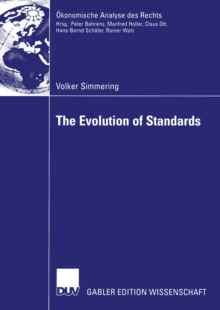
Professional Testimonial Privileges : A Law and Economics Perspective PDF
by Lev Eppelbaum
Part of the Okonomische Analyse des Rechts series
Description
This work contributes to a field in the literature of law & economics in which little research has been done thus far namely the relationship between corporate law and procedural law such as the rules of evidence and of civil procedure.
As the reader will discover in the following pages, attorneys, accountants, and journalists, each play an important role in promoting corporate compliance with the law as gatekeepers and monitors against wrongdoing.
Ido Baum evaluates the importance of the professional testimonial privilege - a rule that allows the professional to refrain from testifying with regard to information received from his client - in promoting this objective.
He does so by looking at the efficient performance of the professional privilege in the United States, England, and Germany while taking into account systemic differences such as the starkly different civil procedure regimes and the structural differences in corporate ownership and control in the capital markets of the compared jurisdictions.
Focusing on the relationship between the corporate counsel and the corporation, this book provides new insights into the internal effects of the corporate lawyer-client privilege on corporate decision-making.
For example, it is shown that the narrow application of the privilege in some US states creates an inefficient incentive to inflate corporate boards in order to reduce the exposure to sanctions for corporate malfeasance.
As accounting standards are converging around the world, the author provides some warnings with respect to situations in which accountants and lawyers choose to work together.
Information
-
Download - Immediately Available
- Format:PDF
- Publisher:Gabler Verlag
- Publication Date:13/03/2009
- Category:
- ISBN:9783834999757
Information
-
Download - Immediately Available
- Format:PDF
- Publisher:Gabler Verlag
- Publication Date:13/03/2009
- Category:
- ISBN:9783834999757










